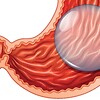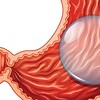Fritextsökning
Artiklar per år
Innehållstyper
-

Affibody får EU-lån på 20 miljoner euro
Svenska Affibody, som utvecklar terapier mot inflammatoriska sjukdomar och cancer, har beviljats ett lån på 20 miljoner euro från Europeiska investeringsbanken, EIB.
-

Sverige arrangerar stor life science-konferens som del av EU-ordförandeskapet
Den 26-27 juni ska Sverige stå värd för ett europeisk möte om life science, berättar Jenni Nordborg, nationell life science-samordnare.
-

Christoffer Rosenblad blir permanent vd på Xvivo
Transplantationsbolaget Xvivo Perfusion har utsett Christoffer Rosenblad till vd med omedelbar verkan. Han har haft rollen som tillförordnad vd sedan slutet av september.
-

She creates pharmaceuticals on a 3D printer
The correct dosage for each individual, regardless of whether the pharmaceutical is for a seriously ill child or a frail elderly person, is the mission of a well-advanced project with 3D-printed drugs at Uppsala University. “It will soon be available in clinics”, says Christel Bergström, who is heading the project.
-

Viss effekt av Alzheimers-behandling bekräftas i studie – Bioarctic stiger på börsen
Nya data bekräftar att Bioarctics läkemedel lecanemab bromsar Alzheimers sjukdom – om än i måttlig utsträckning och med vissa biverkningar. Beskedet fick bolagets aktie att stiga under onsdagsförmiddagens handel.
-

Uppgifter får Bioarctics aktie att backa
-

He is zooming in on topical preparations
According to Zelmic CEO David Sagna, topical products in drug development is a growing market, and to keep pace with the development, the company is awaiting approval for its new GMP facility.
-

Han går på djupet med topikala beredningar
Topikala produkter inom läkemedelsutveckling är en växande marknad, enligt Zelmics vd David Sagna, och för att hålla jämna steg med utvecklingen väntar företaget på godkännande för sin nya GMP-anläggning.
-

Neanderthal genes and Nobel Prize in a popular lecture at Bioscience
An inherited gene variant from our ”evolutionary cousins” – the extinct Neanderthals – may affect how our bodies break down certain drugs. “It’s only a matter of time before we actively start screening for it,” said KI researcher Hugo Zeberg when
-

"Are we doing business the wrong way around in the Life Science Sector?"
For the past 50 years we have created solutions for problems that we thought would solve the problems. Pharmaceuticals have created big block buster drugs which were great for that time but now we realise that these drugs were in fact only tested in white men and certainly not for patients who are older who are taking a number of medications.
-

Alert from the Swedish Medicines Agency: Many complications with gastric balloons
According to the Swedish Medicines Agency, an increasing number of serious complications are being reported in procedures with gastric balloons as a method for weight loss. The authority fears significant shortcomings in the information to patients both before and after the procedure.
-

“We need to build flexible operating theatres”
Flexible operating theatres, micro-sensors on surgeons to monitor their well-being and 3D images projected onto organs to be operated on. These are a few ideas that three specialist surgeons are suggesting for the operating theatre of the future.
-

Läkemedelsverket varnar: Många komplikationer med magsäcksballonger
Allt fler allvarliga komplikationer rapporteras vid ingrepp med magsäcksballonger som metod för viktminskning, uppger Läkemedelsverket. Myndigheten befarar att det finns stora brister i informationen till patienter både inför och efter ingreppet.
-

Promising Alzheimer’s study data sends Bioarctic stock soaring
The drug candidate lecanemab from Swedish company Bioarctic significantly slowed down the deterioration in patients with early on-set Alzheimer’s, according to preliminary results from a phase III study.
-

Bioarctics Alzheimerresultat hyllas i internationella medier
"Historiskt", "en möjlig seger", "fantastisk vändning". Nyheten om att svenskutvecklade lecanemab i en fas III-studie ser ut att kunna bromsa tidig Alzheimers har fått stor uppmärksamhet i internationell media.
-

Biosimilars bring price pressure, but are they sufficiently used?
When biosimilars were introduced just over 16 years ago, hopes were raised that they would give many more patients access to effective but otherwise extremely expensive treatments with biological drugs. So, how well has Swedish healthcare used biosimilars? The answer partly depends on whom you ask.
-

Bromsade tidig Alzheimers i studie – Bioarctics aktie rusar
Läkemedelskandidaten lecanemab från svenska Bioarctic bromsade signifikant försämringen hos patienter med tidig Alzheimers sjukdom, enligt preliminära resultat från en fas III-studie. Beskedet fick aktien att rusa på onsdagsförmiddagen.
-

Novo Nordisks studie: Insulin en gång i veckan gav bättre effekt
Data från det danska läkemedelsbolagets Onwards-studie tyder på att insulin som ges en gång per vecka har större effekt än insulin som ges varje dag.
-

Bought a tablet factory – and built his own empire
In 1995, Thomas Eldered was CEO of one of Pharmacia’s factories in the Stockholm area when the Swedish pharmaceutical giant, after a takeover, decided to move its production abroad. 34-year-old Thomas was facing an imminent risk of losing his job. However, instead, it actually turned out to be the starting point for one of the biggest success stories in Swedish life science.
-

Biosimilarer ger prispress, men används de tillräckligt?
Biosimilarernas ankomst för drygt 16 år sedan väckte hopp om att många fler patienter skulle få tillgång till effektiva men annars mycket dyra behandlingar med biologiska läkemedel. Så hur bra har svensk sjukvård varit på att använda biosimilarerna? Svaret beror, åtminstone delvis, på vem man frågar.
-

Marie Gårdmark: Potential step change – EU regulators get to play with data
A new pilot from EMA is starting in September to assess wether the analysis of 'raw data' by regulatory authorities improves the evaluation of marketing approval for new medicines. Marie Grådmark writes in a column that she is looking forward to the outcome of the pilot to hopefully then understand if “in house” analyses actually will add value.
-

Genes from Neanderthals can affect the correct drug dosage
A fifth of all Europeans carry gene variants inherited from Neanderthals, which cause certain drugs to break down more slowly. This may have implications for the drug doses they should take.
-

Lucy Robertshaw: Did you know Stockholm wants to be in top 5 in the world for Life Sciences?
Karolinska Institutet Solna Campus has certainly become the next “Kendall Square”, writes Lucy Robertshaw in a column.
-

Newly discovered gene variant linked to protection against abdominal obesity
American researchers believe they have identified a rare gene mutation that protects against abdominal obesity and metabolic syndrome. The ambition is that the discovery will lead to new treatments that can help reduce the risk of type 2 diabetes and coronary artery disease.